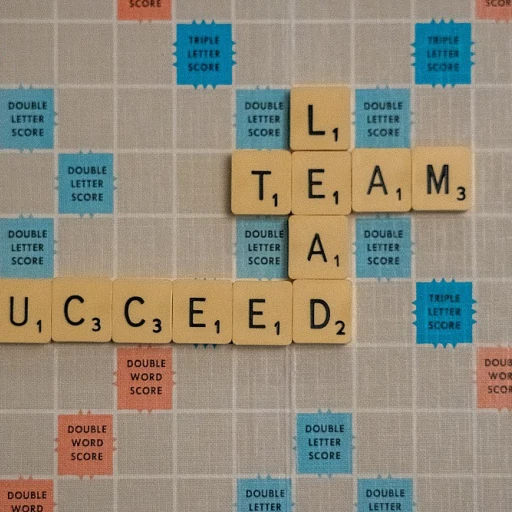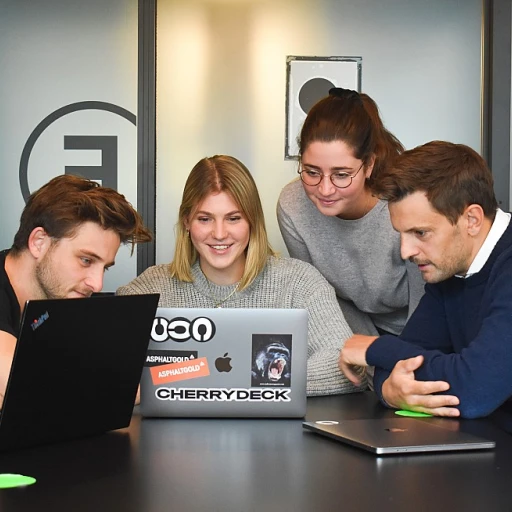
Understanding HR Training Process Problems
Common Obstacles in HR Training
The HR training process is integral to fostering a productive and harmonious workplace. However, it often faces numerous challenges that can impede its effectiveness. Understanding these obstacles is the first step in addressing them and enhancing the overall corporate culture.
One of the primary issues is the skills gap. As industries evolve, the demand for new skills grows, leaving many employees struggling to keep up. This gap can lead to decreased productivity and employee disengagement, affecting the company's bottom line. HR teams must continuously update their training programs to address these evolving needs.
Resource Limitations
Another significant challenge is the lack of resources. Many companies struggle to allocate sufficient time and budget for comprehensive training programs. This limitation often results in rushed or incomplete training sessions that fail to equip employees with the necessary skills. Moreover, inadequate resources can hinder the development of effective onboarding processes, impacting new employees' ability to integrate smoothly into the company culture.
Resistance to Change
Resistance to change is a common hurdle in implementing new training initiatives. Employees and management alike may be hesitant to adopt new methods or technologies, fearing disruption to established routines. Overcoming this resistance requires clear communication and demonstrating the benefits of the proposed changes, which will be discussed further in our exploration of strategies for improvement.
By identifying these challenges, companies can begin to develop targeted solutions that enhance their HR training processes, ultimately leading to a more engaged and skilled workforce.
Impact on Corporate Culture
Consequences on Company Environment
The challenges encountered in HR training processes can significantly impact the corporate culture of a company. When the training and development efforts are not effectively managed, it can lead to several repercussions that affect the overall workplace environment. These consequences not only hinder employee engagement but also affect the performance management frameworks in place within the organization.
A poorly executed employee onboarding process might result in new hires feeling disconnected, underprepared, and undervalued from the onset. This disconnect can further manifest as a barrier to effective learning development, causing skills gaps that eventually affect the team dynamic. Furthermore, ineffective training programs can also lead to higher turnover rates, as employees may seek other opportunities where they feel more supported and valued.
Another major impact on corporate culture is the erosion of trust and morale within the teams. When employees feel that the training programs do not provide them with the necessary resources and skills they need, it can lead to dissatisfaction. This dissatisfaction can spread throughout the workplace, causing a decrease in employee experience and engagement. Consequently, the chances of nurturing top talent within the company diminish.
Additionally, ineffective training development can adversely affect leadership development. Team leaders and managers may struggle with conflict resolution and maintaining high morale if they haven't participated in adequate training themselves. Consequently, the company culture becomes one where challenges are not addressed effectively, and there is a lack of involvement and commitment from employees in critical workplace processes.
Overall, addressing these challenges through robust HR training processes is vital for cultivating a healthy and positive corporate environment. Companies that invest time and effort in improving their training strategies can help foster a culture of continuous learning and improvement. To explore these ideas further, consider the insights shared in the resource on effective leadership goals to better enhance performance reviews.
Identifying the Root Causes
Uncovering the Origins of Training Inefficiencies
Understanding the root causes of inefficiencies in HR training processes often requires a deep dive into several fundamental areas. It's essential to dissect these elements, as they ultimately impact both the employees' development and the overarching corporate culture. One significant factor lies in the misalignment between training programs and the skills required for day-to-day work. Employees may find themselves attending workshops that do not directly correlate to their tasks, leading to a waste of valuable resources such as time and effort. A well-designed training program should be closely tied to the specific skills needed within different teams, ensuring relevance and engagement. Another common issue is inadequate onboarding processes. When new hires are not effectively integrated into their roles or the company culture, it leads to prolonged adjustments and conflicts potentially arising from misunderstandings or lack of support. Well-structured onboarding can significantly enhance the employee experience, reducing the skills gap from the beginning. Resources, or the lack thereof, also play a critical role in the efficacy of training programs. Limited access to experienced trainers or developmental tools can result in ineffective learning and development sessions. Companies must balance their investment in training with the anticipated improvement in employee performance and engagement. Moreover, a lack of continuous feedback and performance management throughout the training development cycle can stall progress. Regular check-ins are vital to ensure that employees feel heard and valued, facilitating ongoing improvement in both individual performance and overall team dynamics. Finally, an evolving workplace demands that training programs adapt to future trends such as digital learning solutions or gamified learning experiences. Companies that proactively address these changes can maintain a competitive edge, fostering a vibrant work culture that attracts and retains top talent. Addressing such underlying issues is crucial for promoting effective training solutions. For practical insights, consider exploring how some organizations have successfully revamped their HR training through initiatives that resonate well with their corporate culture: impact on corporate culture.Strategies for Improvement
Enhancing Employee Engagement and Development
Creating effective HR training strategies is crucial to bridging the skills gap and enhancing employee engagement. Understanding that training challenges can arise due to various factors, companies need to implement strategies that foster a enriching learning environment. This not only boosts employee experience but also positively impacts the overall workplace culture.- Customizing Training Programs: Tailoring training programs to meet the specific needs of teams and employees can significantly enhance the onboarding process. Organizations should offer diverse learning development opportunities, focusing on individual and team skills, thereby promoting effective conflict resolution and reflecting the company's commitment to personal growth.
- Incorporating Continuous Feedback: Regular check-ins and performance management are vital components in nurturing employee development. By providing timely feedback, companies can ensure that employees feel valued, and empowered to contribute meaningfully to the organization.
- Utilizing Resources Efficiently: Efficient resource management can help mitigate training challenges. Investing in development programs that strategically align with organizational goals maximizes the impact of the training process and ensures the best use of available time and resources.
- Leveraging Technology: The integration of technology in training development has revolutionized how knowledge is imparted. It allows for continuous learning, helps in tracking progress, and provides a platform for employee engagement that ensures adaptability within the workplace context.
Case Studies of Successful HR Training Revamps
Transforming Challenges into Opportunities
In response to the myriad challenges faced during the training and onboarding processes, several companies have undertaken successful revamps of their human resources training programs. These initiatives not only address existing issues but also enhance overall company culture and employee engagement. Let's delve into a few notable examples that showcase effective strategies and tangible results.- Customizable Onboarding Process: By tailoring onboarding training to the unique needs and backgrounds of new employees, companies have seen a significant improvement in employee experience and engagement from the start. Allowing new hires to engage in self-paced learning modules enables them to assimilate into their roles more comfortably. One company's investment in user-friendly platforms for onboarding catered to diverse learning styles and helped bridge the skills gap effectively.
- Focus on Continuous Learning: Successful corporations have implemented continuous development programs that resonate with their employees. This commitment to ongoing education fosters a learning culture, which is essential in nurturing top talent and cultivating a robust workplace. The training development initiatives can range from offering online courses and workshops to creating personalized career path programs, ensuring that employees feel supported in their growth. These developments not only enhance the employees' skill sets but also lead to increased innovation and productivity within teams.
- Engage Leadership in Training: Integrating leadership into employee training programs has been a game-changer for many organizations. Leaders actively participating in these programs show commitment and model a standard of excellence that imbues the company culture. Furthermore, leadership development aspects within training enable managers to better handle conflict resolution, making them more effective in performance management. This has, in turn, resulted in more meaningful employee check-ins and improved team dynamics.
- Utilizing Real-time Feedback: Companies that prioritize immediate feedback within their training processes have observed remarkable improvements in their training programs. Real-time feedback helps address training challenges promptly, ensuring that resources and employee time are utilized efficiently. Implementing regular feedback loops strengthens both training and company management by aligning employee development goals with company objectives.
Future Trends in HR Training
Anticipating Future Developments in HR Training
The process of HR training is poised for significant evolution as companies continue to adapt to emerging trends and demands in the workplace. With an ever-changing corporate culture, understanding future trends in HR training becomes both a priority and a necessity to ensure employees are equipped with the required skills to thrive.- Digitization and Technology: Technology is reshaping HR training development by introducing more advanced digital solutions. Companies are increasingly leveraging platforms for online learning, virtual simulations, and AI-driven programs to tailor experiences and enhance employee engagement. These tools can personalize the onboarding process and development programs, providing employees with real-time feedback and allowing for continuous skill development.
- Focus on Soft Skills: As work environments evolve, there is a rising recognition of the importance of soft skills, such as conflict resolution and team collaboration. Training programs are now incorporating modules that focus on these competencies, helping employees feel more prepared to navigate the nuanced dynamics of modern workplaces.
- Data-Driven Strategies: The use of analytics in HR training is becoming more prevalent. Companies are employing data-driven strategies to assess training challenges and identify skill gaps, efficiently allocating resources to target specific needs. This approach not only optimizes the effectiveness of training programs but also aligns them with broader performance management goals.
- Continuous Learning Environments: To keep teams engaged and motivated, there is a shift towards creating an environment that prioritizes continuous learning. Regular check-ins and flexible training schedules are gaining popularity, as they allow employees to integrate learning into their work seamlessly, thus enhancing the overall employee experience.
- Remote and Hybrid Work Considerations: The rise of remote and hybrid work models has prompted a reevaluation of traditional HR training processes. Development programs now have to account for diverse working arrangements, ensuring inclusivity while maintaining the effectiveness of learning development strategies.













